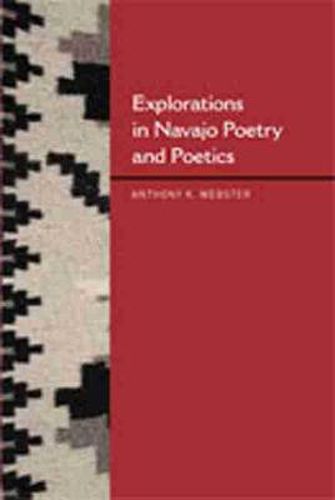Readings Newsletter
Become a Readings Member to make your shopping experience even easier.
Sign in or sign up for free!
You’re not far away from qualifying for FREE standard shipping within Australia
You’ve qualified for FREE standard shipping within Australia
The cart is loading…






This title is printed to order. This book may have been self-published. If so, we cannot guarantee the quality of the content. In the main most books will have gone through the editing process however some may not. We therefore suggest that you be aware of this before ordering this book. If in doubt check either the author or publisher’s details as we are unable to accept any returns unless they are faulty. Please contact us if you have any questions.
Of the nearly 300,000 people who identified themselves as Navajo in the 2000 U.S. Census, 178,014 identified themselves as speakers of Navajo. While these rough numbers give an impression that the Navajo language is widely spoken, scholars continually point out that it is a threatened language and that young Navajos are not learning the language at a rate that will ensure its continued use. Poetry, however, written and performed in both Navajo and English, continues to emerge as an important voice for Navajos, providing an outlet for recounting the past through storytelling and offering the Navajo perspective on a wide range of issues including what it means to be Navajo. Linguistic anthropologist Anthony Webster began over a year of dissertation research on contemporary Navajo poetry on the Navajo Reservation in the spring of 2000 and returned for additional fieldwork in the summers of 2007 and 2008. In this study he investigates the devices found in Navajo written and oral poetic traditions. He then explores aspects of language such as code-mixing, punning, and ideophony (sound symbolism), often considered marginal in linguistics literature, revealing how they are central to the study of ethnopoetics and a discourse-centered approach to language and culture.
$9.00 standard shipping within Australia
FREE standard shipping within Australia for orders over $100.00
Express & International shipping calculated at checkout
This title is printed to order. This book may have been self-published. If so, we cannot guarantee the quality of the content. In the main most books will have gone through the editing process however some may not. We therefore suggest that you be aware of this before ordering this book. If in doubt check either the author or publisher’s details as we are unable to accept any returns unless they are faulty. Please contact us if you have any questions.
Of the nearly 300,000 people who identified themselves as Navajo in the 2000 U.S. Census, 178,014 identified themselves as speakers of Navajo. While these rough numbers give an impression that the Navajo language is widely spoken, scholars continually point out that it is a threatened language and that young Navajos are not learning the language at a rate that will ensure its continued use. Poetry, however, written and performed in both Navajo and English, continues to emerge as an important voice for Navajos, providing an outlet for recounting the past through storytelling and offering the Navajo perspective on a wide range of issues including what it means to be Navajo. Linguistic anthropologist Anthony Webster began over a year of dissertation research on contemporary Navajo poetry on the Navajo Reservation in the spring of 2000 and returned for additional fieldwork in the summers of 2007 and 2008. In this study he investigates the devices found in Navajo written and oral poetic traditions. He then explores aspects of language such as code-mixing, punning, and ideophony (sound symbolism), often considered marginal in linguistics literature, revealing how they are central to the study of ethnopoetics and a discourse-centered approach to language and culture.